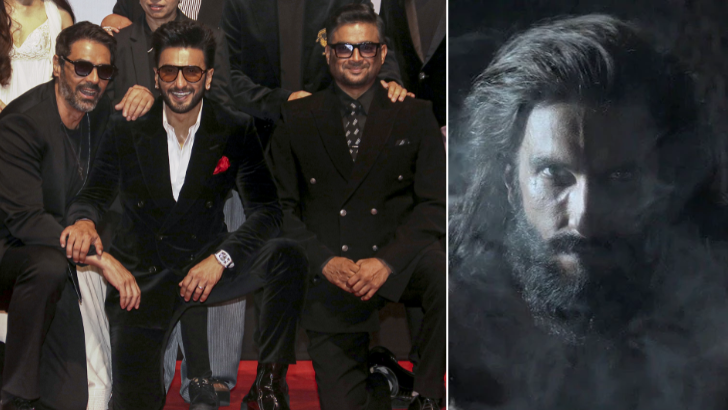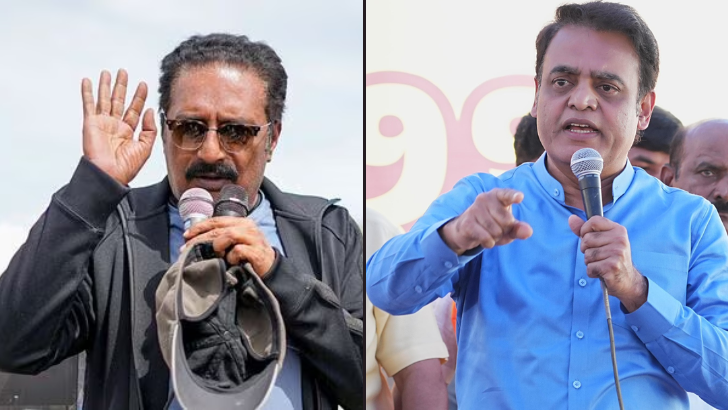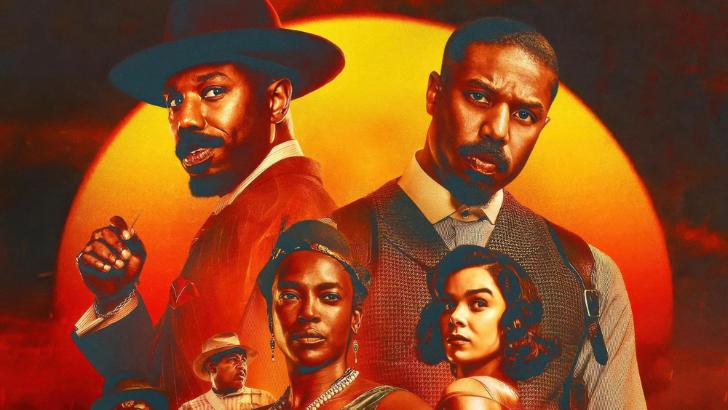'Humans in the Loop' inquires AI bias through eyes of a tribal gig worker: filmmaker Aranya Sahay
Filmmaker Aranya Sahay’s Humans in the Loop explores AI bias and hierarchy in knowledge systems through a tribal gig worker’s story, releasing 5 Sept in select theatres.
PTI
-
Photo | PTI
New Delhi, 3 Sep
"If AI is going to have an impact on all of humanity, does it represent all of us?" is the question that filmmaker Aranya Sahay wanted to explore in his film ‘Humans in the Loop’, which questions hierarchy in knowledge systems through the eyes of a tribal gig worker.
Set in Jharkhand, the story revolves around Nehma, a tribal woman who finds work at an AI data-labelling centre after her divorce. Initially enthusiastic about her job, Nehma soon finds herself at odds with the data she is given to feed the machine. The film also explores Nehma's strained relationship with her teenage daughter, who longs to go back to the city.
Sahay, who studied political science and history at St Stephen's College and followed it up with a direction course at FTII, said the basic idea of the film came from a news article about Adivasi women interacting with AI in Jharkhand but it soon became an inquiry into how artificial intelligence is "primarily being trained on first-world data".
"As data labellers work with images, they go through thousands of photos and videos to tag objects in a photo. And then the algorithm begins to understand the basic difference between a chair-table, traffic lights and other such objects. It's similar to the act of parenting. As our children are growing up, we teach them the difference between colors, objects, things," Sahay told PTI in an interview.
"And then we force our morality onto our children. So, this opens the film to a much larger conversation: 'If AI is going to have an impact on all of humanity, does it represent all of us or does it only represent a rather Euro-centric worldview'?"
‘Humans in the Loop’ has travelled around film festivals like MAMI, Cinevesture and won the FIPRESCI India award. ‘Laapataa Ladies’ helmer Kiran Rao and filmmaker Biju Toppo have boarded the film as executive producers. It will next screen at the Jagran Film Festival in Delhi. The film is releasing in select theatres on 5 September.
The filmmaker said he travelled to Jharkhand and spent almost a year there. The place really informed his theme and the issues he wanted to tackle in the film.
"As I was researching and travelling, I would see these old colonial structures pop up. There are single-gauge trains, arches, etc. Almost 300 years ago, there were colonists who came to these parts and deemed indigenous and tribal ways of life as primitive and tribals as savages.
"That could happen again if we had an AI which was primarily trained on first-world data. So that became the foundation of the film. And it became something more than just a revelation that this work is happening in Jharkhand," he said.
Asked whether he realised that his film was tackling AI at a time when there is a lot of anxiety about its impact on the future, Sahay said he ensured that whatever he was showing in the film was happening in real-time.
"I didn't want to keep the form of the film futuristic because whatever is happening is happening now. So even the data labeling images are from now... I wanted to make this about today, and about how these different strands of the Adivasi reality interact with AI as of today," Sahay said.
The filmmaker's central character has a reverence for nature that's inherent to the tribal culture. Early in one of the scenes, Nehma takes her city-bred daughter for a foraging trip to the nearest jungle and tells her to gently pull sweet potatoes from the ground or to look closely at the life around her -- from trees to the tiniest of insects.
Sahay said he wanted to contrast Nehma's knowledge about nature with what's happening around to highlight how knowledge is hierarchical and the world is still deeply imperialistic.
"Certain knowledge systems are said to be far better and more civilised. And certain knowledge systems are discarded as primitive. So that was interesting to explore. I would chat with a lot of people in Jharkhand and I remember an instance where a woman told me that when they walk on grass, they thank it whereas we feel entitled to walk on it.
"We've lost that nuance because we're so far away. So AI is going to be about binaries. There's a certain nuance when you interact with something closely. And when you are just peripherally dealing with something, you go into binaries. In that sense, we are trying to question the hierarchy of knowledge systems," he said.
Though his film is about how technology is interacting with people, especially gig workers, Sahay wanted his story to be character-driven and told through the eyes of his tribal protagonist.
"Nobody is going to come and watch a film for the theatrics of the technology that I'm using. The emotional hook of the film is the mother-daughter story. And on that string of emotional storytelling, I'm able to hang all the things I want to say about technology, about imperialism, about AI," he said, citing Denis Villeneuve's sci-fi drama ‘Arrival’ and Christopher Nolan's ‘Interstellar’ as his influences.
The filmmaker, who earlier made award-winning short films and worked as an assistant director, said his parents are sociologists and that has influenced the kind of stories he wants to tell.
His father has retired from the government service, but his mother is still a practising sociologist.
"That really forms the basis of anything I like doing. I like grappling with how things are. And the not-so-obvious interplay between different kinds of worlds. But my first love was not cinema, it was music. I learned Hindustani classical music for a long time, but then I felt I could not do justice to this other side of me, which was oriented towards understanding society. That's why I shifted gears."
‘Humans in the Loop’ features Sonal Madhushankar, Gita Guha, Vikas Gupta, Anurag Lugun and Ridhima Singh, among others.
Leave a Reply
Your email address will not be published. Required fields are marked *








.png)



.png)
.png)



.png)
.png)
.png)
